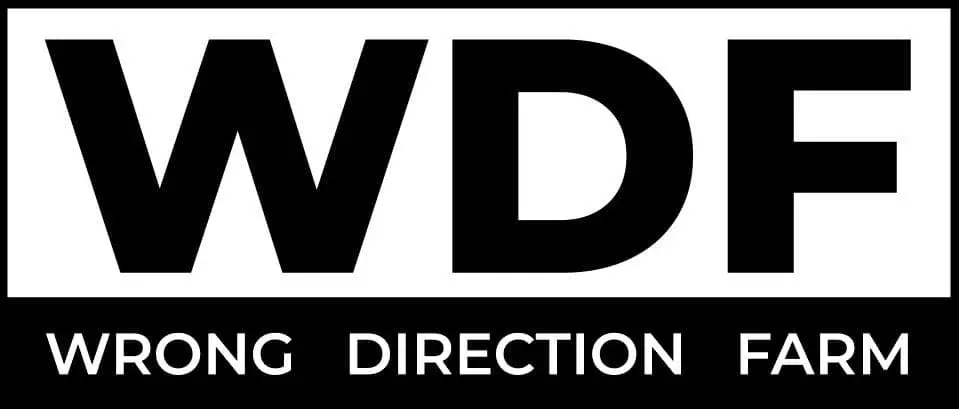This is a topic for which I’ve started and then abandoned more blog posts than any other I’ve attempted to cover. It’s one of those things that can, with just the slightest imbalance in emphasis, become a piece of self-congratulation, praising my humility. But I’m giving it a shot.
There’s a challenge for our farm and for others like it. Since we don’t have the reach or the marketing budget of the national chains, small farms depend on a connection between the consumer and the farmer. Eating is at root a fundamental biological act, but within a complex world eating also touches on issues of identity, policy, ecology, energy, and probably a bunch of other words ending in the letter “y.”
For many of the people I’ve talked to, there’s an underlying desire to connect with the farmer directly. They want to know that their farmer is someone they can trust, someone they can feel good about supporting. Any farmer participating in direct marketing becomes a personal representative for the farm. Maybe the word mascot applies here. The farmer can actually embody the attributes of the farm. It’s inevitable, and it’s good. The “Know your Farmer, Know your Food” bumper sticker does encapsulate an important truth. But this situation has drawbacks.
Farming with the Flash Bulbs Popping
I am concerned about the step beyond basic social interaction, where we encounter the concept of celebrity. The spirit of our time pushes us all towards a competitive celebrity environment, one in which our personal brand is measured by the size of our social network influence and the amount of adulation we receive in public forums. The celebrity is the story, the celebrity is the center, the celebrity is everything.
Earlier this summer there were some disappointing reports on a famous chef and spokesman-at-large for regenerative agriculture, detailing allegations of terrible working conditions and significant compromises within his farm’s production systems. Two years ago, probably the most recognizable American pasture-based farmer faced a backlash from employees and interns for creating an unsafe environment and for failing to uphold the standards which he discussed in public talks and interviews. Interestingly, one intern promoted himself heavily and received strong media attention, positioning his approach as the antidote to the situation, only to have his staff abandon him en masse last year claiming he was both incompetent and insufferable.
I’ve decided to avoid naming names because I’m not all that interested in the muckraking aspect of this topic. If you want the lurid details, a little bit of web sleuthing will get you what you desire. Although I’ve intersected with some of those involved, I don’t have a dog in these fights. I don’t pretend to know who’s right, or to what extent the blame lies on specific individuals’ shoulders. The specifics aren’t at the heart of my concern.
Celebrity is Monoculture
My concern is that celebrity itself is a problem. It is part of the same instinct for monoculture that is destroying agriculture. Naturally healthy systems involve a teeming diversity of plants and animals, each responding to the climate, terrain, and land use. Our fixation on a small group of prominent individuals feels akin to our tendency to plant unbroken mile after mile of one crop with no thought of the consequences. In this case, only one person receives the attention. Only one influence is exerted.
To the extent that one stands in that center of public adulation (or public ignominy), we find that new pressures are exerted to pull that person away from the good work that brought them the initial recognition. This may not be as much of a problem in businesses that easily scale, but in small farming there are situations where the increase in publicity creates such an increase in the customer base, that farms need to chase growth well beyond what their land and their management skills can handle. Exponential growth will always be mismatched with the resource-constrained environment of food production.
There are performative aspects to our contemporary form of personal platform-building which also exacerbate the damage. Borrowing on the old theme from Amusing Ourselves to Death, I’ll trot out the observation that “the medium is the message.” Celebrity, when mediated across social networks, creates its own imperatives for messaging. Our boldest statements need to become bolder. Our most audacious claims can always be made more strident. Our greatest hits gain their superfans, and we’re encouraged to spend more time repeating them rather than thinking new thoughts and changing our ways.
None of this is unique to farming. But I do feel that “celebrity” itself is particularly antithetical to the goals of small farming. Instead of spotlighting a few outsized individuals, I’d prefer to be part of an abundant system where many, many people could thrive from their work on the land. Our culture will always love to love its heroes as they rise, and love to hate them as they fall. But farming and food depend on the slow work of lifetimes, of generations, carefully developing an understanding of the land and the product being farmed. It requires the knowledge and care of many people, and the work of each of those people must be valued and rewarded for us to achieve the kind of success necessary to transform our farmland and our food.
